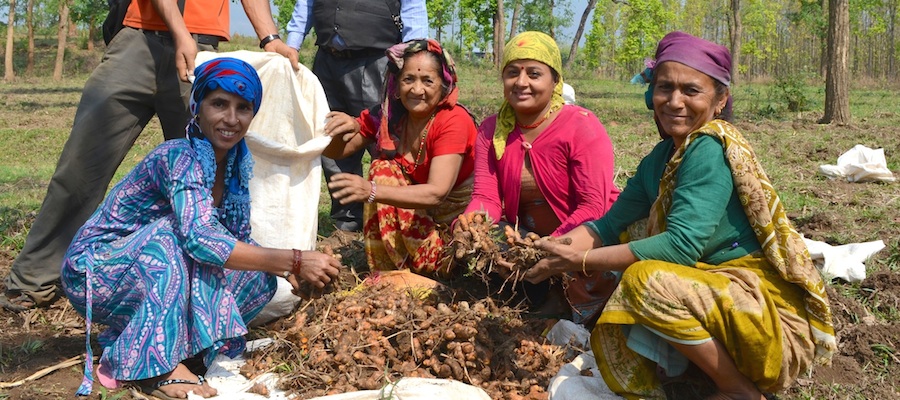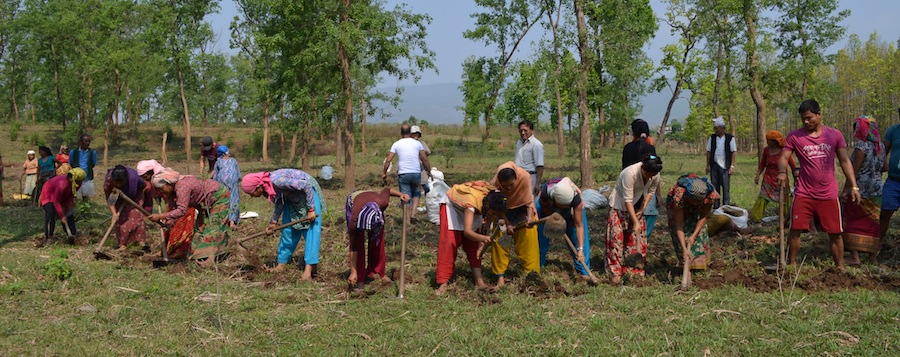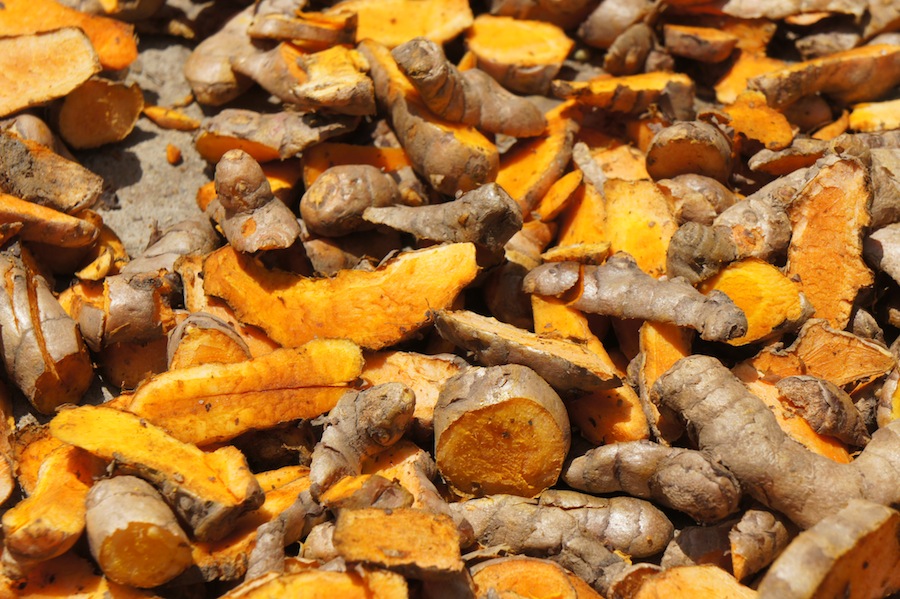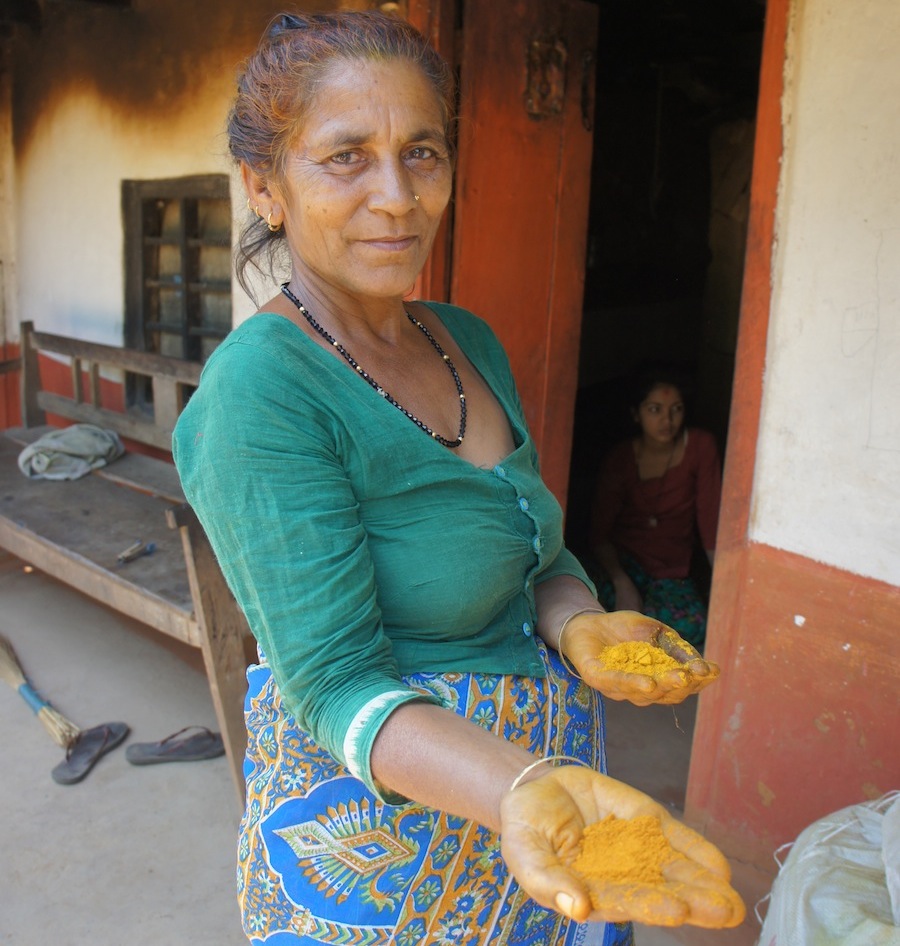
Imagine you are a rural farmer, like over 80% of the population of Nepal, who relies on the limited crops you can grow on your land to feed your family. You never have a surplus to sell for a profit, so you have no income. You are illiterate, like 43% of Nepalis, which makes it difficult to get a job. You can’t break the cycle of poverty for your family by sending your children to school because you need their help on the farm just to grow enough food to make it through the year. These are the challenges that many rural people face across South Asia, like in Deurali village in Nepal.
READ launched a Center in Deurali in 2012, and today its sustaining enterprise is a turmeric cooperative that is creating local jobs and helping people break the cycle of poverty, while supporting local education.
Before READ opened our Deurali READ Center, the villagers had limited educational and economic opportunities. 18.7% of the population cannot read and ¾ of these illiterate villagers are female.
81% of the village lives on subsistence farming, with 44% of them not producing enough food to sustain their families for the year.
With an average of more than 5 people per family, almost everyone in Deurali works on the farm to produce corn, potatoes, and rice, and raise livestock like cows and goats. About 25 schools exist in the district, but children often have to leave school at a young age to help out on the family farm.
One of the ways in which the READ model promotes community development is by conducting livelihood skills trainings and establishing sustaining enterprises – small businesses that provide an income for villagers and support the ongoing operating costs of the READ Center in the long run. Agricultural enterprises are often effective because they build on resources and skills already available to the community.

The Deurali READ Center established the Garima Women Saving and Credit Cooperative, composed of 115 women who collectively save money and give out loans to members. The members of the Garima cooperative then began volunteering their time to cultivate and harvest the turmeric. To date, they have collectively volunteered about 800 working days to support the sustaining enterprise.
The Deurali READ Center’s turmeric cooperative sustaining enterprise just had a harvest this May.

The beautiful golden piles of aromatic turmeric pictured here are the hard-won product of two years of work for the villagers, who launched the cooperative in 2012 after the opening of the Deurali READ Center in March 2012. This Center in the Nawalparasi district of Nepal serves 15,399 villagers.
The Deurali turmeric cooperative is part of a pilot program by READ Global to link farm-based sustaining enterprises from several Centers to distribute their products in larger markets.
Agricultural cooperatives can help rural farmers increase yields by pooling production resources like land, labor, and capital.
The distribution business will allow the farmers to sell their products at stores, hotels, and restaurants in larger cities like Kathmandu, allowing the farmers to raise their prices and generate more income for their families and local Centers.
Deurali village collectively plants and harvests the ginger-like root on the 1.7 hectares of land donated by the villagers for the crop, not far from the READ Center. From the harvest, to sun-dried roots, to grinding the turmeric into powder, and finally then packaging the spice for sale, this sustaining enterprise provides a source of income for dozens of families. What’s more, a portion of the profits helps pay for electricity, books, and educational programming like literacy and computer courses at the Center.

The turmeric processing mill is located at the home of Deurali READ Center secretary Ganesh Gaire and his mother Krishna Maya Gaire, who is pictured here.
Turmeric is one of the most important ingredients in Nepali culinary culture, as a spice and preservative, and also has medicinal properties according to traditional beliefs. The turmeric cooperative produced 5,600 kg of turmeric this year and expects to double this amount in next year’s harvest. They will sell both fresh and ground turmeric locally and in nearby cities.

About the author:
Helen Greene, READ Global Communications Intern
Helen is a senior at Princeton University studying Comparative Literature. Home for the summer of 2014, she joined READ Global as a Communications Intern, writing blog and social media posts, among other things. She looks forward to a career in the non-profit field focusing on women’s empowerment, health, and education.



